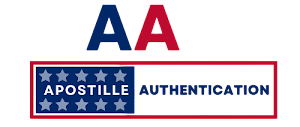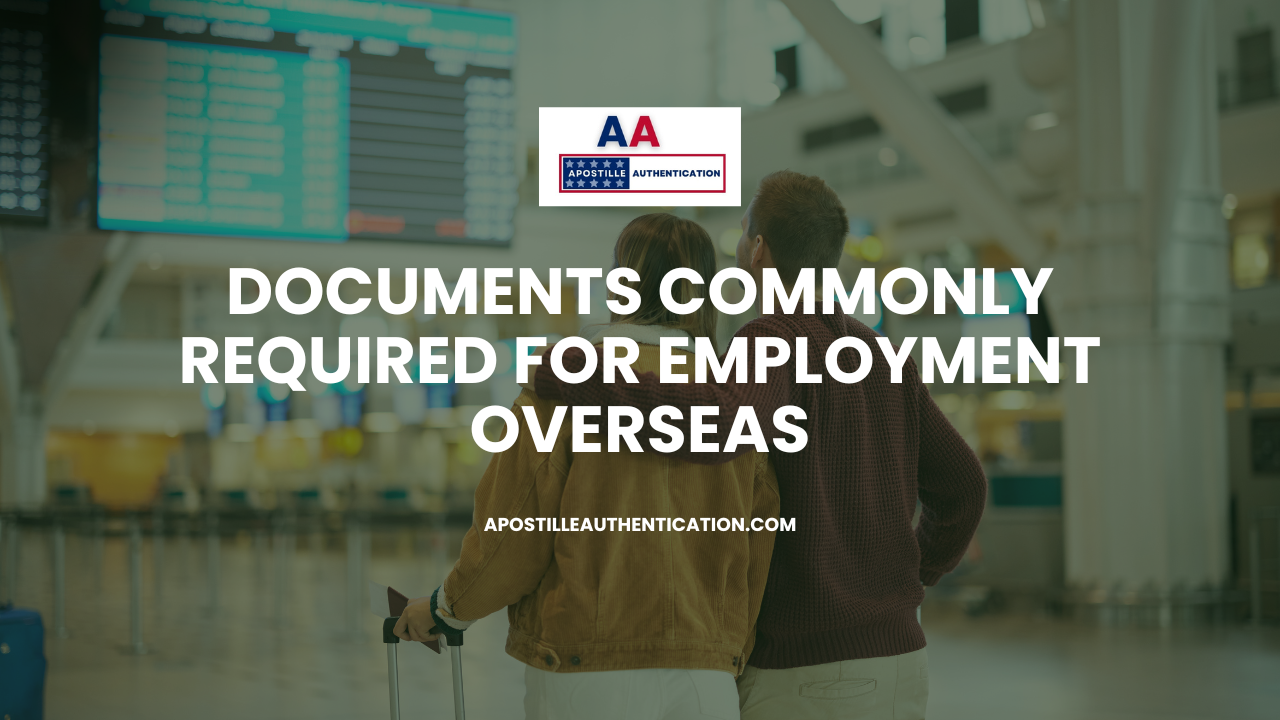In an increasingly globalized world, the prospect of seeking employment overseas has become a reality for many individuals. Whether driven by career opportunities, personal growth, or economic necessity, pursuing a job in a foreign country requires careful planning and adherence to specific documentation requirements. In this comprehensive guide, we will explore the essential documents commonly required for employment overseas, shedding light on the intricacies and nuances that applicants must navigate.
- Diploma/transcript or other qualifications certificates
- Reference Letters: Endorsements from Previous Employers
- Health and Medical Documents: Ensuring Fitness for Employment
- Criminal Record Check: Establishing Trustworthiness
- Driving License in International Employment
- Visa: The Legal Permit for Employment Abroad
Diploma/transcript or other qualifications certificates
In the pursuit of international opportunities, individuals often find themselves navigating a myriad of document authentication processes to validate their academic qualifications. The apostille is a crucial component in this journey, particularly when it comes to diplomas, transcripts, and other qualification certificates.
An apostille is a specialized certificate issued by a competent authority that verifies the authenticity of a document for use in foreign countries. It is a simplified form of document authentication recognized under the Hague Convention. Apostille diplomas/transcripts, and qualification certificates, obtaining an apostille is often a prerequisite to validate these documents internationally.
In an era where individuals seek educational and career opportunities across borders, the global recognition of educational credentials is paramount. An apostille serves as a universal assurance that the presented academic documents are genuine and have undergone a standardized verification process, facilitating their acceptance in countries that are party to the Hague Convention.
When applying for jobs overseas, employers typically require evidence of educational qualifications. An apostille on diplomas, transcripts, and qualification certificates adds an extra layer of credibility to these documents. It assures employers that the presented credentials are legitimate, easing the recruitment process and enhancing the trustworthiness of the candidate.
Reference Letters: Endorsements from Previous Employers
Reference letters from previous employers can significantly bolster an applicant’s credibility. These letters often attest to the candidate’s work ethic, skills, and character. International employers may seek references to ensure the candidate has a proven track record and is a reliable and trustworthy professional.
Health and Medical Documents: Ensuring Fitness for Employment
Some countries require health and medical documentation to ensure that the applicant is fit for employment. This may include a general health certificate, vaccinations, and in some cases, a comprehensive medical examination. Understanding and fulfilling these requirements are essential for a smooth immigration and employment process.
Criminal Background Check: Establishing Trustworthiness
A clean criminal record is often a requirement for employment overseas. Employers may request a criminal record check or police clearance certificate to ensure the applicant has no history of criminal activity. It is advisable to initiate this process well in advance, as obtaining such documents can take time.
Driving License in International Employment
In the global landscape of employment, possessing a valid driving license is an often overlooked yet crucial aspect, especially for roles that involve mobility and transportation. Whether it be for a job that requires frequent travel or simply as a means of personal convenience, a driving license can play a significant role in enhancing an individual’s employability and overall adaptability to a new environment.
One of the primary advantages of holding a driving license when seeking employment abroad is the increased mobility and flexibility it offers. Many jobs, especially those in sales, field service, or logistics, require employees to move between locations efficiently. A driving license allows individuals to operate vehicles, providing them with the freedom to commute independently and adapt to the dynamic demands of their roles.
For positions that involve frequent business travel, a driving license is often a prerequisite. Employers may require candidates to be able to drive, especially if the job involves visiting clients, attending conferences, or managing projects in various locations. Additionally, some companies provide employees with company vehicles, making a driving license a key qualification for those seeking such perks.
A driving license can be invaluable in emergency situations. Whether it’s evacuating an area due to unforeseen circumstances or responding promptly to a work-related crisis, the ability to drive can prove to be a crucial skill. Employers may consider this factor when assessing the overall preparedness of an employee to handle unexpected challenges in a foreign setting.
Visa: The Legal Permit for Employment Abroad
Securing a work visa is a crucial step in the employment process for many countries. A work visa is a legal permit that allows foreign nationals to work in a specific country for a designated period. The application process varies widely, depending on the destination country’s immigration policies. Applicants typically need a job offer or employment contract from a local employer to initiate the visa application process. Understanding the specific visa category and requirements is essential for a smooth and successful application.

